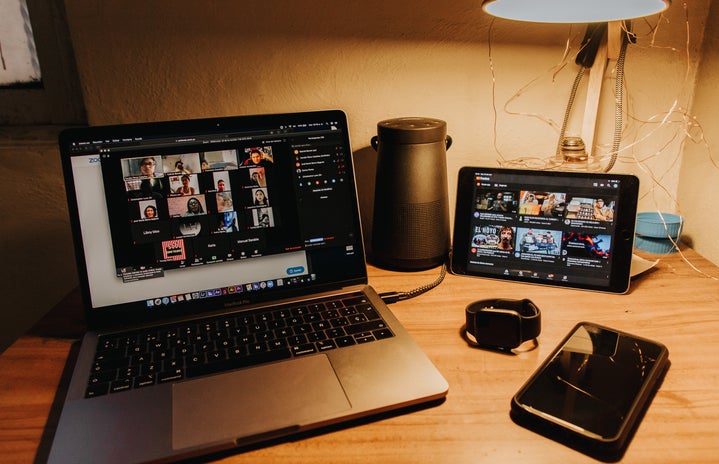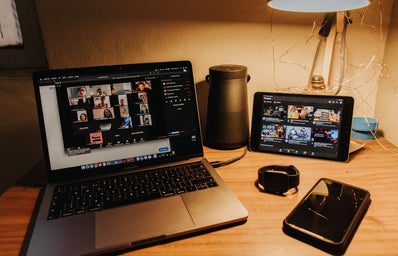Body dysmorphic disorder (BDD) is defined as a mental health condition where one is preoccupied with perceived physical flaws to the extent that it disrupts their daily life. It is no secret that I have struggled with body dysmorphia for as long as I can remember, even before I developed anorexic tendencies in high school. My family and close friends all have come to recognize the disease and, to the extent they are able, they are understanding. But no one can truly understand what it feels like. Everytime I look at myself in the mirror I have to remind myself that what I see is no more than a clever lie, always shifting, changing based on how I feel. Everytime I look down at my lap my legs are a different width. I believed, wholeheartedly, that I was fat when I was twenty pounds underweight. Sometimes how I look is all I can think about. I become obsessed. I stare at myself for hours just picking and poking. This is often mistaken for vanity or self absorption, but it is in fact disgust. Sometimes I cannot leave the house. I feel so repulsive. I do not want to be seen.
One unflattering picture can torment me for weeks, make me skip meals and extend workouts. Seeing my reflection in a bathroom mirror can make me go home. For me, having the camera on in Zoom classes is more than a distraction, it is torture. My own personal hell. I find myself transfixed by my image, unable to pay attention, to look away. I get up during class to adjust the lighting, bring another lamp into the room. I leave the room to change clothes, sometimes multiple times during a call. I felt myself spiralling into a deeper and deeper depression. It has become harder and harder for me to go to class. Sometimes I turn my camera off because I have reached a breaking point, I cannot look at for another second, I cannot hear a word anyone is saying, the only thing in the world is me. Then it happens. The professor notices, and says as if they ask so little of me, “can you please turn your camera on.” For most professors, it seems to be a preference, but I’ve had classes where it was required for attendance or a participation grade. For some time I have suffered in silence believing that I was alone in my resentment of Zoom. I was scared to email my professors because I feared they would believe it was a made up excuse. A friend suggested turning off self view, as if that could comfort someone like me, but the truth is if the camera is on I know everyone else is looking at me in that little box and at least in my mind they are judging me the way I judge myself.
I was so terrified of “sounding crazy” that I never said a word about it. It was not until now that I realized the pandemic has been detrimental to others with BDD. Dr. Katharine Phillips, professor of psychiatry at Weill Cornell Medicine, attending psychiatrist at New York-Presbyterian Hospital, and author of The Broken Mirror: Understanding and Treating Body Dysmorphic Disorder, observed that for people with BDD something as simple as a Zoom or video call, where participants can view a thumbnail of their face, can stir up an unhealthy thought spiral.
I realized that I am far from the only student with BDD who struggles with Zoom classes. According to the Diagnostic and Statistical Manual of Mental Disorders approximately 1 in 50 people have BDD. The International OCD Foundation found that 60% of them are women and the disorder usually becomes apparent around age 12 or 13. And for the most part, BDD goes undiagnosed as “people with BDD are often reluctant to reveal their appearance concerns to their therapists, doctors, family members, and other people because they are embarrassed and ashamed of their symptoms.” So why are high schools and colleges failing to acknowledge our existence? Why aren’t they doing anything to help us? What should they be doing?
The Body Dysmorphic Disorder Foundation states in a pamphlet about children and young adults with BDD that “[y]oung people with BDD can find particular elements of education very difficult and upsetting.” They recommend several accommodations for students with BDD including:
-
amended lesson timetables (e.g. alternatives to swimming and PE, free-periods for catching up with missed work)
-
access to individual toilets and showers
-
permission not to have school photographs taken
-
permission to wear additional items of clothing in class (e.g. hats)
-
being excused from whole-class presentations
-
being excused from assemblies
-
taking examinations in separate exam halls
-
having missed work consistently sent home or placed in an online portal
Reading this surprised me. In the four years since I was diagnosed with BDD I have not been allowed a single one of these accommodations. I was unaware that accommodations were even offered to someone with my condition. No one ever told me. Not my physiatrist, not my eating therapist, not my nutritionist, not my high school guidance counselor when I went to get IEP, not the Agnes Scott College Office of Accommodation when I tried to get my ESA approved to live on campus with me and was turned down. I realized just how much body dysmorphia is misunderstood and ultimately ignored.
I ask for change. For recognition of my disorder. I am not crazy. I am not vain. I do not just want to get out of work. I struggle with a genuine mental health disorder which rules my everyday life. The pandemic has hit us hard with the isolation, the increased use of social media, and of course the Zoom calls. I ask for teachers and professors to consider their students like me when they put “you must have your camera on for participation” in the syllabus. I ask for them to consider how hard it is for us to write an email explaining how being on Zoom makes us want to crawl out of our skin. This is a matter of accessibility and cannot be ignored.


